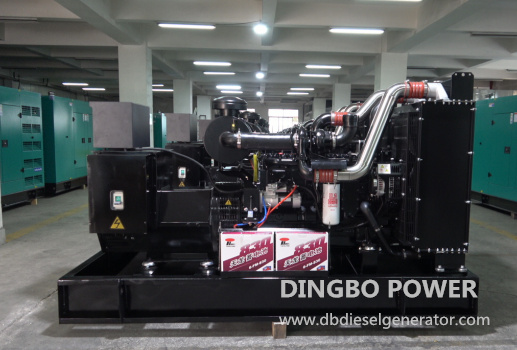Generally, many customers will compare prices between different generator units before they purchase a generator. Besides the generator’s purchase cost, it’s also important to consider the overall costs, including the fuel cost and maintenance cost. A majority of businesses prefer diesel generator sets because they use less fuel while generating more energy output. So how much does it cost to run a diesel generator? This article will help you assess a diesel generator’s running cost.
Factors that affect the cost of running a diesel generator
There are several factors that affect the generator’s f running cost. The things below could lower or increase the estimate costs of running your generator.
Fuel cost
The amount of fuel consumed by your generator depends on various factors, including the fuel efficiency of the engine, the size of the generator, the load level applied, run hours, the fuel condition and so on. The use frequency and your genset’s purpose largely influence the running costs. The diesel expense of a diesel generator per month is mainly based on the price of diesel per litre, the average generator run-time, and the average load on the generator.
Diesel cost fluctuates significantly over time and the fuel costs vary by region. At the moment, the average cost for diesel around the world is around $1.24 per liter. Generally speaking, diesel generators consume 0.4 litres of fuel for every kWh produced. Running a 20kW diesel generator usually costs around $200 per day.

Cost of service and maintenance
Generator maintenance can prevent costly downtime or damage due to malfunction. Compared to other types of generators, diesel-powered generators require less maintenance. To ensure they function at their best and will work efficiently in an emergency situation, it’s necessary to perform regular generator maintenance. Typically, preventive diesel generator maintenance include general inspection, lubrication service, cooling system service, fuel system service, servicing and testing starting batteries and regular engine exercise. Depending on the age of the generator, the generator size, model and brand, this cost varies. A cost of $31 a month is typical for a 100kVA generator that is maintained properly. Basic generator maintenance services usually range from $200 to $600 per year depending on generator size. .
Read also: Commercial Diesel Generator Maintenance Cost Guide
Cost of repairs
Generally, the cost of generator repair varies depending on the fuel condition, the generator size and the scope of the repair. Diesel fuel has a limited shelf life and it can clog or degrade during disuse. If your diesel generator is used in a high-humidity environment, the fuel is more likely to be contaminated. You will need fuel polishing to remove the contaminants and restore necessary fuel additives. As a general rule, fuel needs polishing every one to four years. The cost for this service varies, you can expect to pay $1.00/gal for this. Additionally, spills and overfilling are common mistakes users make.
Diesel generators comes in different sizes and configurations. In general, the smaller and less power the generator, the less cost of repairs will be. Larger models are more complicated in structure, and the cost of repairs will be higher.
If your generator is well-maintained and don’t need many repairs, the repair cost will decrease. If serious problems occur on your equipment and you need to hire a professional to troubleshoot the issues, the cost will increase. The price of fixing or replacing diesel generator parts also vary. For example, repairing small parts of your generator's engine can cost as little as $50, but more comprehensive jobs can be more than $2,000.
How to reduce your generator running costs and save money?
There are many ways to save money when operating your generator. Some options include:
Choose the right size diesel generator: Always use a generator that can comfortably handle all your power needs while using no more than 90 percent of its capacity. To select the right size generator, list out what you'll need to supply power to and calculate the amount of wattage needed. Choose a generator with a capacity that's 10-20% larger than your requirement.
Use a high-quality generator: The initial cost of a high-quality diesel generator will be a bit more higher, but you can save the operating costs in the long term. Reputable generator brands such as Cummins, Perkins and Volvo, offer high-quality materials and advanced technology, ensuring that the generator can withstand the rigorous demands of your business.
Load management: Operating at the recommended load increases your genset’s efficiency. When diesel generators run a lower load than 50% they will become more inefficient and consume more fuel. It's recommended that you always keep your generator at 50% of the maximum load or higher.
Maintain your generator regularly: Correct maintenance will prolong your generator’s operating life and reduce running costs. A well-maintained generator can use up to 20% less fuel than a poorly maintained one. Follow the suggested service schedule and ensure that your diesel generator is running efficiently.
Summary
The costs of running a diesel generator include the fuel cost, maintenance cost and repair cost. The diesel expense is associated with the diesel price, the generator run-time, and the load on the generator. To save money when using your generator, choose the right size generator from reputable reputable brands and adjust the power output according to the demand to manage the load of your generator. Always use high-quality fuel. It’s also important to maintain and service the generator regularly.
Contact Dingbo Power for more information on how to minimize the running costs of your diesel generator. If you’re looking for a new generator, our experts can give you the right advice and help you find the one that best fits your needs.
Comments
Post a Comment